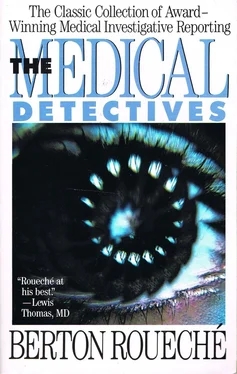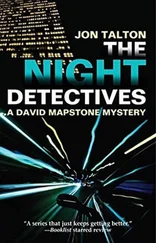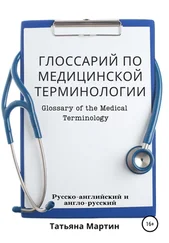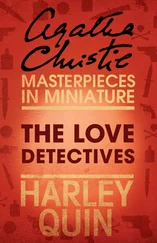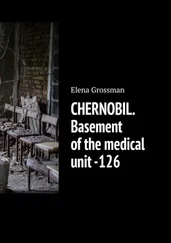"Well, that was something," Dr. Fuerst said. "Even if it was beside the point. But we also had another consolation. None of the patients had died. None was going to. They were all making excellent progress."
"That's true enough," Dr. Pellitteri said. "But we couldn't claim much credit for that." He paused, and shifted around in his chair. "About all we can take any credit for is Miss Gamso, here," He smiled. "Miss Gamso saved the day. She got inspired."
Miss Gamso gave me a placid look. "I don't know about inspired," she said. "It was more like annoyed. I heard them talking—Dr. Birnkrant, and these two, and all the rest of them—and I read the reports, and the days went by and they didn't seem to be getting anywhere. That's unusual. So it was irritating. It's hard to explain, but I got to thinking about that carrier Mrs. Christos.
There were two things about her. She lived with a son-in-law who was a known food handler. He was a baker by trade. Also, where she lived was right in the middle of everything—519 West 178th Street. That's just off Audubon. And Audubon is the street where practically all our cases did most of their shopping. Well, there was one store in particular—a fruit-and-vegetable market called Tony's—on almost everybody's list. The address was 261 Audubon Avenue. Then I really got a brainstorm. It was right after lunch on Tuesday, August 27.1 picked up the telephone and called the bureau that registers house numbers at the Borough President's office, and I asked them one question. Did 519 West 178th Street and 261 Audubon Avenue happen by any chance to be the same building? They asked me why I wanted to know. I wasn't talking, though. I just said was it, in a nice way, and the man finally said he'd see. When he came back, I was right. They were one and the same. I was so excited I thought I'd burst. Dr. Pellitteri was sitting right where he is now. He was the first person I saw, so I marched straight over and told him. He kind of stared at me. He had the funniest expression." Miss Gamso smiled a gentle smile. "I think he thought I'd gone crazy."
"I wouldn't say that," Dr. Pellitteri said. "I'll admit, however, that I didn't quite see the connection. We'd been all over Tony's—it was almost our first stop—and there was no earthly reason to question Miss Matthews' report on Mrs. Christos. The fact that they occupied the same building was news to me. To all of us, as I recall. But what if they did? Miss Gamso thought it was significant or suspicious or something. The point escaped me. When she mentioned the son-in-law, though, I began to get a little more interested. We knew him, of course—anybody who lives with a carrier is a potential cause of trouble—and checked on him regularly. But it was just possible that since our last checkup he had become infected. That happens. And although we hadn't found him working in any of the stores, he could have come and gone a couple of weeks before we started our investigation. At any rate, it was worth looking into. Almost anything was, by then. I went up that afternoon. I walked past Tony's on the way to 519. There wasn't any doubt about their being in the same building. Tony's is gone now, like Mrs. Christos, but the way it was then, his front door was about three steps from the corner, and around the corner about three more steps was the entrance to the apartments above. The Christos flat was on the fifth floor—Apartment 53. Mrs. Christos and her son-in-law were both at home. They let me in and that's about all. I can't say they were either one delighted to see me. Or very helpful. She couldn't add anything to what she had already told Miss Matthews. The son-in-law hardly opened his mouth. His last regular job, he said, had been in January, in a cafeteria over in Astoria. Since then, he'd done nothing but odd jobs. He wouldn't say what, when, or where. I couldn't completely blame him. He was afraid that if we got to questioning any of his former employers, they'd never take him on again. When I saw how it was, I arranged for a specimen and, for the moment, let it go at that. There was no point in getting rough until we knew for sure. I told him to sit tight. If he was positive, I'd be back in a hurry. I got the report the next day. He wasn't. He was as harmless as I am. But by then it didn't matter. By that time, it was all over. To tell the truth, I had the answer before I ever left the building."
Dr. Pellitteri shook his head. "I walked right into it," he said. "It was mostly pure luck. What happened was this. On the way out, I ran into the superintendent—an elderly woman. I was feeling two ways about the son-in-law—half sympathetic and half suspicious. It occurred to me that the superintendent might have some idea where he'd been working the past few weeks. So I stopped and asked. She was a sour old girl. She didn't know and didn't care. She had her own troubles. They were the tenants, mainly. She backed me into a corner and proceeded to unload. The children were the worst, she said—especially the boys. Always thinking up some new devilment. For example, she said, just a few weeks ago, toward the end of July, there was a gang of them up on the roof playing wild Indians. Before she could chase them off, they'd stuffed some sticks down one of the plumbing vent pipes. The result was a stoppage. The soil pipe serving one whole tier of apartments blocked and sprang a leak, and the bathroom of the bottom apartment was a nice mess. I hadn't been paying much attention until then. But at that point—Well, to put it mildly, I was fascinated. Also, I began to ask some questions. I wanted to know just what bathroom had flooded. The answer was Apartment 23. What were the other apartments in that tier? They were 33, 43, and 53. What was underneath Apartment 23? A store—Tony's Market, on the corner. Then I asked for a telephone. Birnkrant's reaction was about what you'd expect. Pretty soon, a team from Sanitary Engineering arrived. They supplied the details and the proof. Tony stored his fruits and vegetables in a big wooden walk-in refrigerator at the rear of his store. When Sanitary Engineering pulled off the top, they found the soil pipe straight overhead. The leak had been repaired almost a month before, but the sawdust insulation in the refrigerator roof was still damp from the waste that had soaked through. It wasn't Tony's fault. He hadn't known. It wasn't anybody's fault. It was just one of those things. So that was that."
"Not entirely," Dr. Fuerst said. "There was still Jones to account for. It wasn't necessary. The thing was settled. But I was curious. I had a talk with him the next day. We talked and talked. And in the end, he remembered. He was a night walker. Every evening after dinner, he went out for a walk. He walked all over Washington Heights, and usually, somewhere along the line, he stopped and bought something to eat. It was generally a piece of fruit. As I say, he finally remembered. One night, near the end of July, he was walking down Audubon and he came to a fruit stand and he bought an apple. On the way home, he ate it."
[1952]
CHAPTER 4
The Incurable Wound
On October 30, 1951, a woman I'll call Mabel Tate, the wife of a West Texas cotton planter, was admitted to the Parkland City-County Hospital, in Dallas, with a tentative diagnosis of bulbar poliomyelitis. The record also noted, as is usual in ambiguous cases, two possible variant readings. They were epidemic encephalitis and, at the suggestion of the Tate family doctor, influenza. The general nature of her trouble, however, was somewhat less uncertain. All major signs and symptoms reflected a virus invasion, and one of massive, if not overwhelming, proportions. Mrs. Tate was blazing with fever, she was wildly agitated, and she was unable to speak, unable to swallow, and unable to move her left arm. Four days later, she sank into a coma, and died. Something about the manner of her death prompted the attending physician to request a clarifying post-mortem examination. The autopsy was done, with Mr. Tate's consent, early the following day. When the attending physician reached the hospital that morning, a report of the laboratory findings was on his desk. It began, "Encephalomyelitis with demonstrable Negri bodies in central motor neurons. . ." There was no need to read any further. That emphatically answered his question. Negri bodies are distinctive clusters of cellular substance whose presence in the brain has just one denotation. Mrs. Tate was a victim of rabies.
Читать дальше
